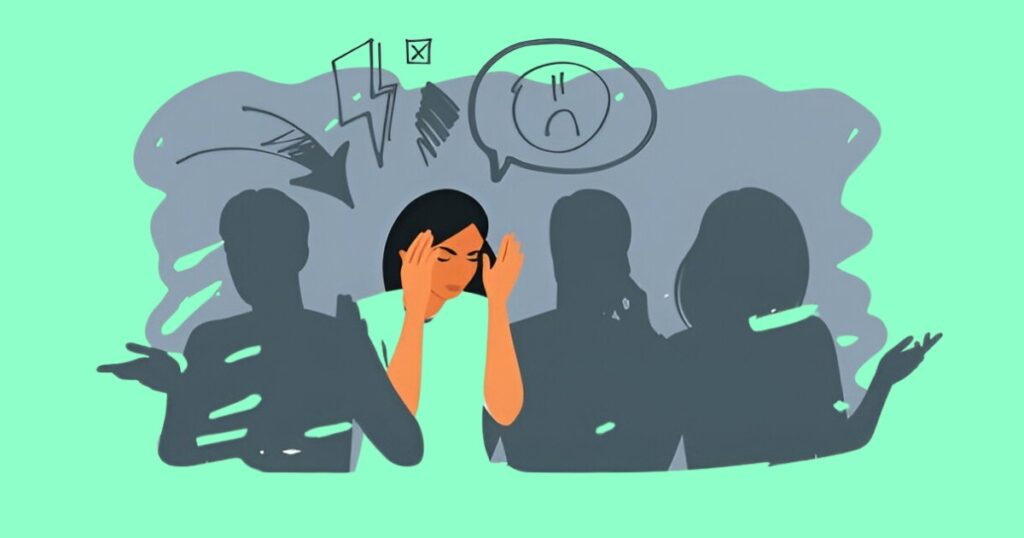Anxiety disorder is a mental health condition characterized by excessive and persistent worry, fear or nervousness that can interfere with a person’s daily life. Anxiety disorder symptoms can vary from person to person but often include a combination of emotional, physical and behavioral symptoms.
Anxiety Disorder Symptoms
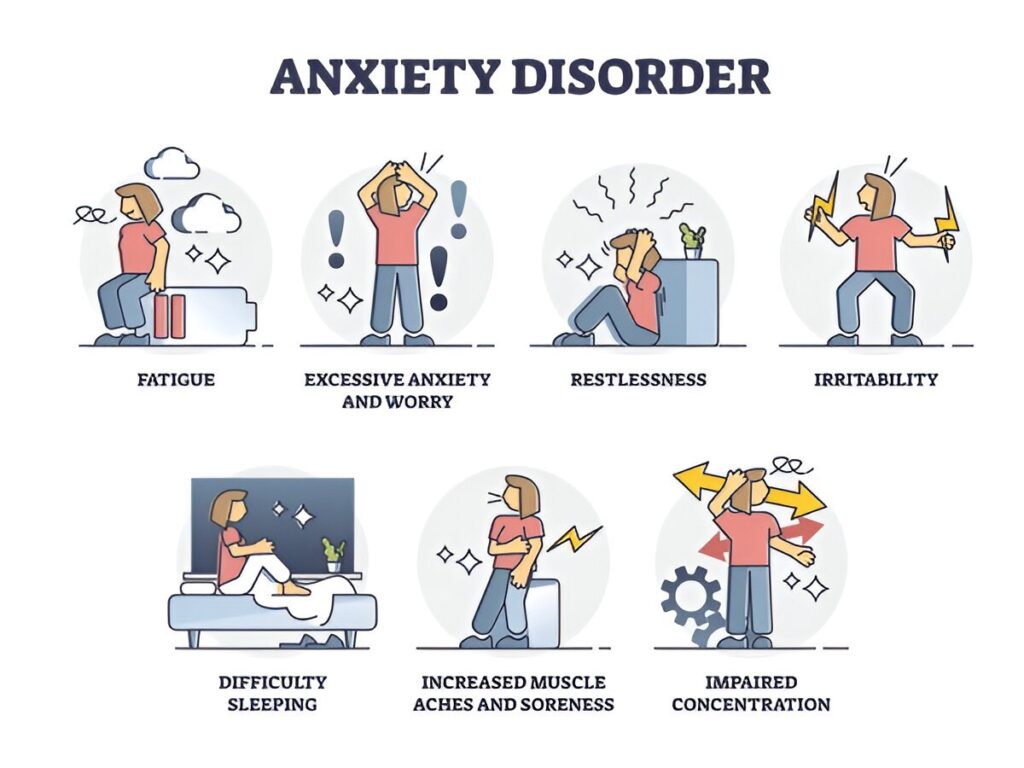
Common symptoms of anxiety disorders may include the following:
Emotional Symptoms
Excessive Worry: Persistent and overwhelming worry about everyday situations, events or activities, often without a clear or realistic cause.
Fear: Intense fear or dread about specific things, such as social situations, particular objects or anticipated events are other common anxiety disorder symptoms. Adult attachment, emotion dysregulation, and symptoms of depression and generalized anxiety disorder.
Restlessness: Feeling on edge or restless, having difficulty relaxing or concentrating.
Irritability: Becoming easily annoyed or irritable, often without a clear trigger.
Trouble Sleeping: Difficulty falling asleep, staying asleep or experiencing frequent nightmares are other common anxiety disorder symptoms.
Nervousness: Feeling nervous, panicky or having a sense of impending doom.
Physical Symptoms of Stress: Experiencing physical symptoms like muscle tension, sweating, trembling or a racing heart are other anxiety disorder symptoms.
Physical Symptoms
Muscle Tension: Feeling tense and experiencing muscle aches or soreness, particularly in the neck, shoulders or back.
Fatigue: Feeling constantly tired or having low energy.
Gastrointestinal Problems: Stomach aches, diarrhea or other gastrointestinal discomfort are also commonly experienced anxiety disorder symptoms.
Sweating: Excessive sweating, especially in stressful situations.
Increased Heart Rate: A racing or pounding heart as well as frequent palpitations are also commonly experienced. Differential patterns of physical symptoms and subjective processes in generalized anxiety disorder and unipolar depression.
Shortness of Breath: Feeling like you cannot catch your breath or experiencing shallow breathing.
Trembling or Shaking: Hands or other body parts may shake or tremble.
Dizziness: Feeling lightheaded or dizzy, sometimes to the point of fainting.
Behavioral Symptoms
Avoidance: Avoiding situations or places that trigger anxiety, which can lead to social isolation
Procrastination: Difficulty starting or completing tasks due to anxiety.
Compulsive Behaviors: Engaging in repetitive behaviors or rituals (obsessive-compulsive disorder) to reduce anxiety. A cognitive-behavioral model of social anxiety disorder. Social anxiety, pp.705-728).
Seeking Reassurance: Frequently seeking reassurance from others to alleviate anxiety.
Substance Abuse: Using alcohol, drugs or other substances to self-medicate or cope with anxiety
Impaired Daily Functioning: Anxiety disorder symptoms can interfere with work, school, relationships and overall quality of life.
Causes of Anxiety Disorder
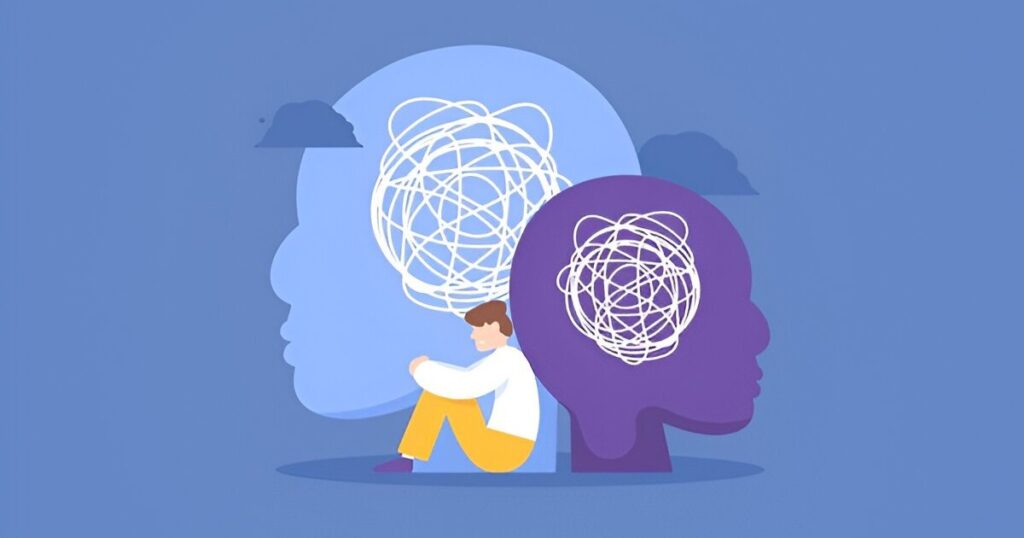
Anxiety disorders are complex conditions with multiple contributing factors. They often result from a combination of genetic, environmental, neurological and psychological factors.
Read along to know some of the critical factors that can contribute to the development of anxiety disorders:
Genetics:
Anxiety disorders can often run in families. Individuals with a family history of anxiety disorders may have a higher risk of developing one themselves. Specific genes and genetic variations may also play a role in predisposing individuals to anxiety.
Brain Chemistry:
Neurotransmitters, which are chemicals that transmit signals in the brain, play a role in regulating mood and anxiety. Overview of anxiety and the anxiety disorders. Imbalances in neurotransmitters like serotonin, dopamine and gamma-aminobutyric acid (GABA) can contribute to anxiety disorders.
Personality Traits:
Certain personality traits, such as perfectionism, high levels of neuroticism and a tendency to be overly sensitive or vigilant, can increase the risk of developing anxiety disorders.
Trauma and Stress:
Traumatic events or chronic stress can trigger or exacerbate anxiety disorders. These events may include physical or emotional abuse, a history of bullying, accidents or significant life changes like divorce or losing a loved one.
Medical Conditions:
Certain medical conditions, such as thyroid disorders, heart conditions and chronic pain, can be associated with anxiety symptoms. Substance abuse and withdrawal from drugs or alcohol can also lead to anxiety.
Neurobiology:
Abnormalities in brain structure or function, particularly in regions associated with the regulation of emotions and the stress response, can contribute to anxiety disorders. Neurobiological mechanisms of social anxiety disorder.
Environmental Factors:
Growing up in a stressful or unstable environment, exposure to chronic violence or trauma and a lack of supportive relationships can increase the risk of anxiety disorders.
Childhood Experiences:
Early childhood experiences, such as insecure attachment, neglect or a history of childhood abuse, can have a long-lasting impact on an individual’s susceptibility to anxiety disorders.
Substance Use:
Certain drugs and medications, including caffeine, stimulants and some over-the-counter or prescription medications, can exacerbate or trigger anxiety symptoms.
Management of Anxiety Disorder
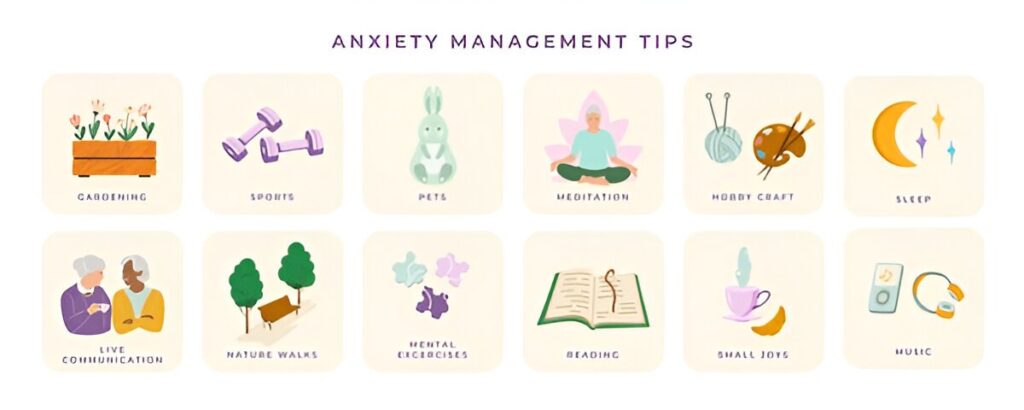
Diagnosing an anxiety disorder typically involves a comprehensive assessment by a mental health professional, such as a psychiatrist or psychologist. There isn’t any one specific anxiety disorder test and diagnosis may usually include clinical interviews, questionnaires and assessments, medical evaluation and psychological testing.
The management of anxiety disorders is often multifaceted and tailored to the individual’s needs. Here are common approaches to managing anxiety disorders:
Psychotherapy:
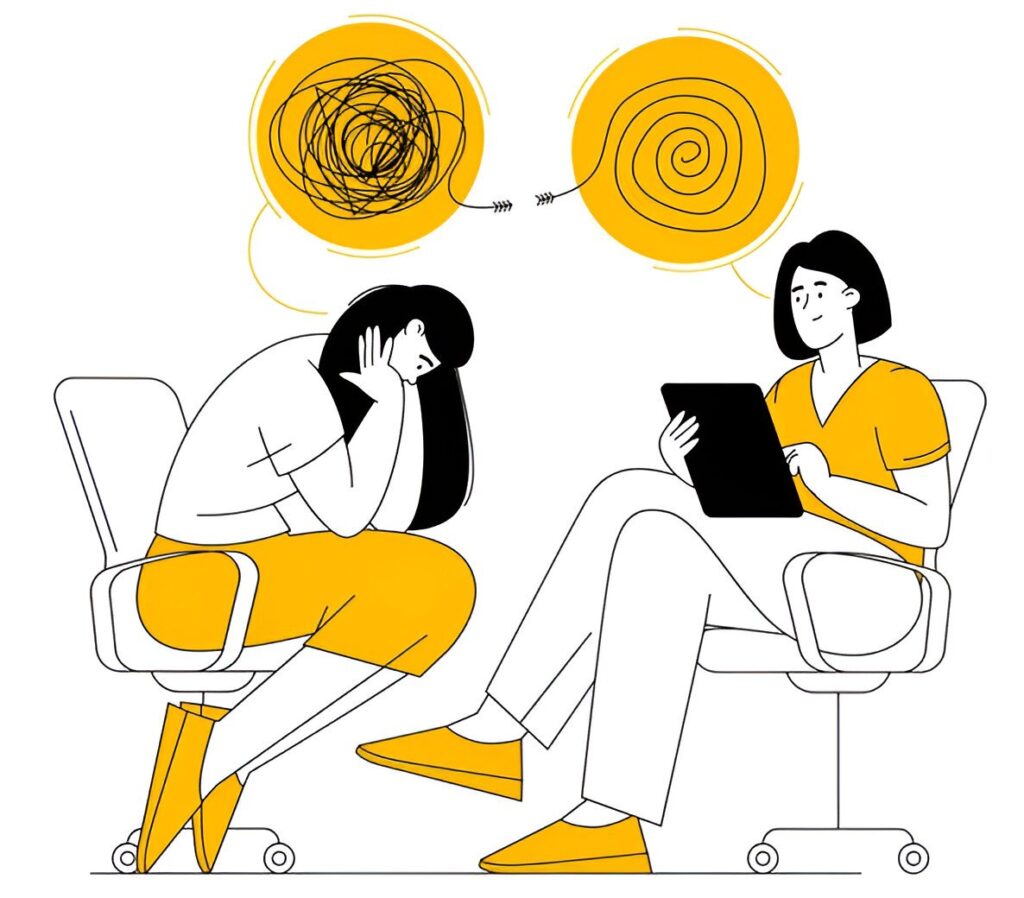
Cognitive-behavioral therapy, exposure therapy, and other forms of psychotherapy are highly effective in treating anxiety disorders. Cognitive therapy vs interpersonal psychotherapy in social anxiety disorder: a randomized controlled trial. These therapies help individuals identify and change thought patterns and behaviors contributing to anxiety.
Medications:
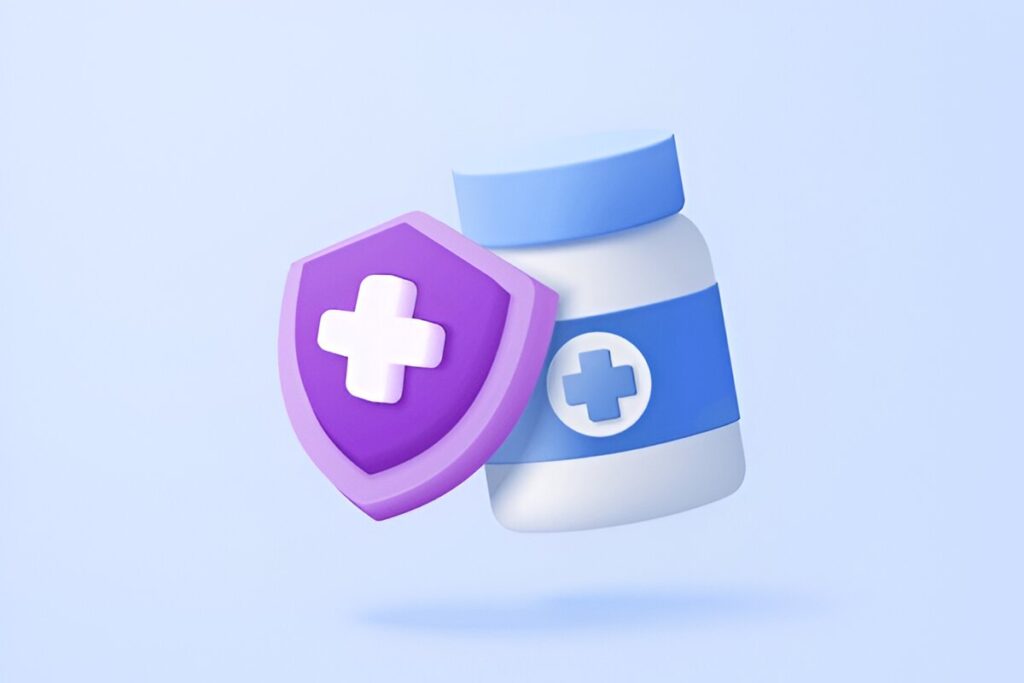
Antidepressants, particularly selective serotonin reuptake inhibitors and serotonin-norepinephrine reuptake inhibitors are commonly prescribed for anxiety disorders. Benzodiazepines may be used in the short term for acute anxiety but are generally avoided due to their potential for dependence.
Lifestyle Modifications:
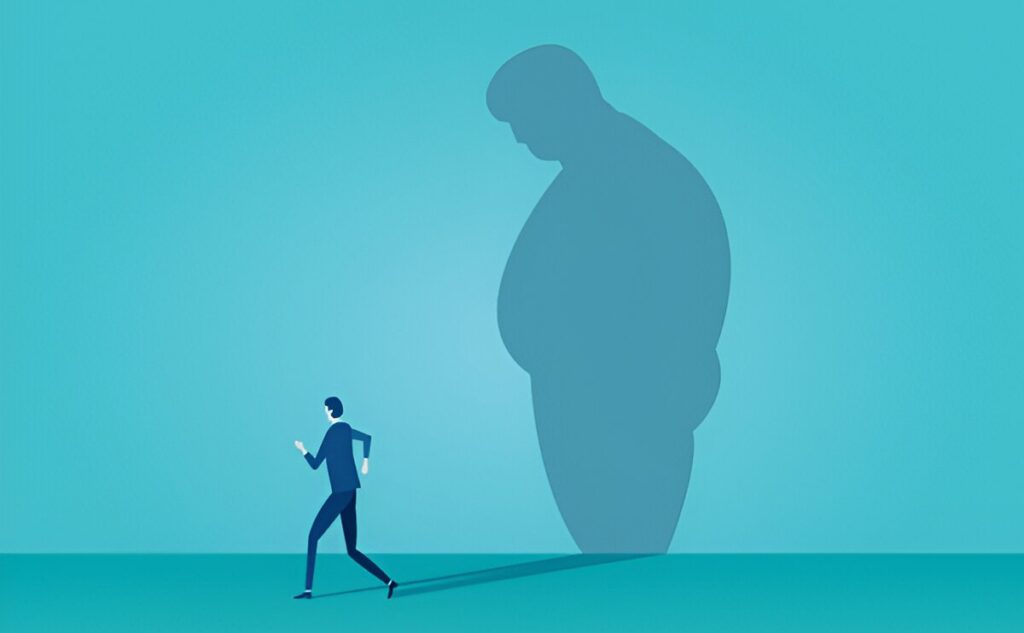
Incorporating stress management techniques like mindfulness, relaxation exercises and regular physical activity can reduce anxiety symptoms. Adequate sleep, a balanced diet and limiting caffeine and alcohol intake can also contribute to overall well-being.
Support Groups:

Joining a support group or participating in group therapy can provide valuable peer support and coping strategies.
Self-Help Strategies:

Learning about anxiety, practicing self-care and using self-help resources like books, apps or online programs can empower individuals to manage their anxiety.
Mind-Body Therapies:

Techniques such as yoga, meditation and acupuncture can promote relaxation and reduce anxiety symptoms. Alternative mind–body therapies used by adults with medical conditions.
Gradual Exposure:

For specific phobias or post-traumatic stress disorder, exposure therapy can help desensitize individuals to anxiety triggers over time. Medication Management: If prescribed medications, it is essential to follow the medication plan as directed by a healthcare provider and attend follow-up appointments.
FAQs
What are the best treatments for anxiety disorders?
The best treatments for anxiety disorders include antidepressants, psychotherapy, cognitive behavioral therapy, stress-management techniques, and anti-anxiety medications.
Which self-care tips may help to reduce anxiety?
Self-care tips and skills like meditation, yoga and visualization techniques help reduce anxiety.

